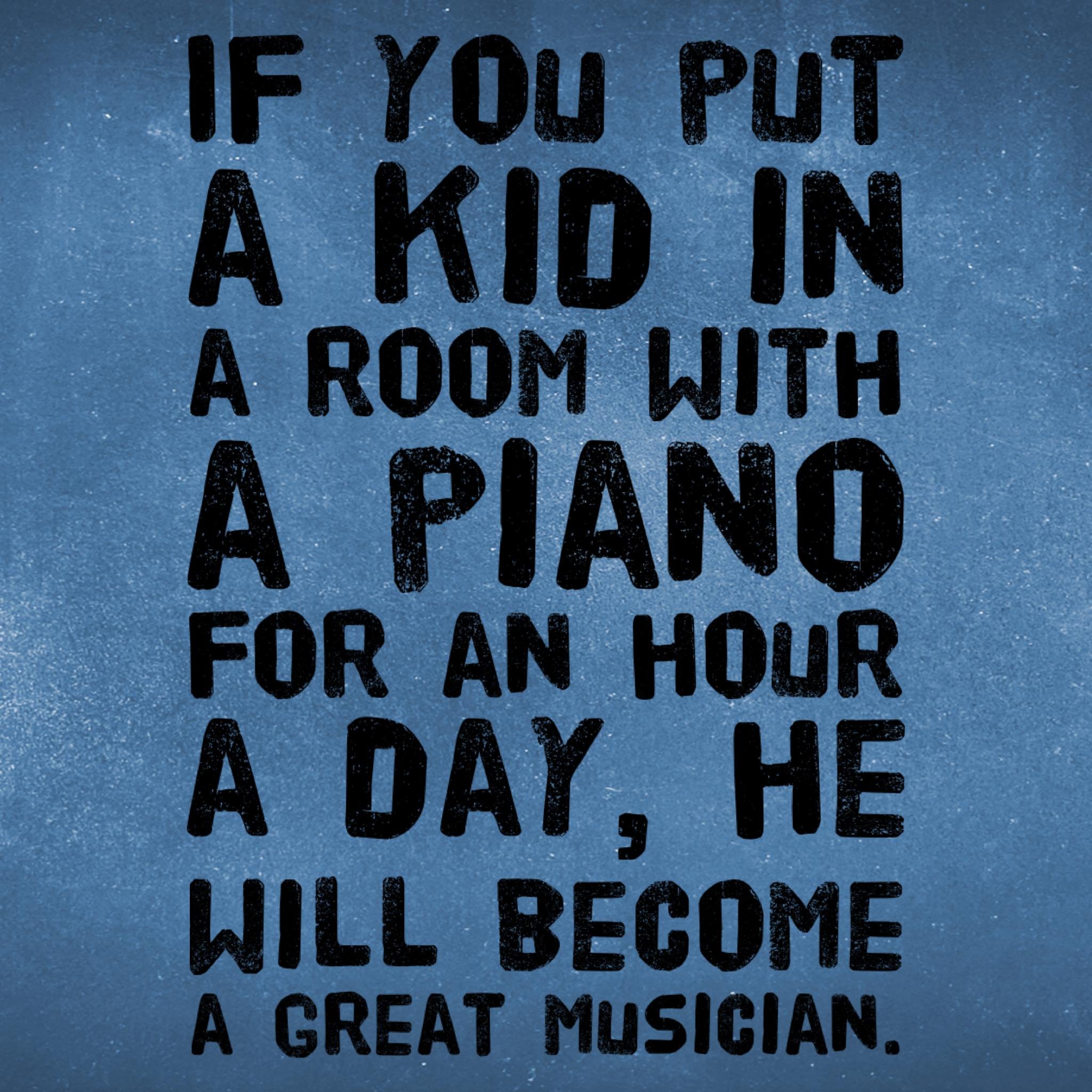What’s wrong with traditional lessons?
“Practice creativity in an environment where mistakes haven't even been invented.”
These are the self-taught musicians who are great at what they do. Often, they have developed their abilities through such an organic process that it is difficult for them to explain how it happened to others.
Being a self-taught musician doesn't mean you aren't learning from others. It simply means you will not let someone else dictate how you learn.
In traditional lessons, students meet weekly with an instructor who will supervise their practice and assess their progress. Feedback is given, and a to-do list is provided for the following week. To move on, the material practiced must pass inspection.
Sadly, this routine creates a learning environment that is fundamentally broken. Whether the student is aware of it or not, their primary goal has become “make no mistakes.”
Learning music isn't like mowing the lawn or taking out the trash, where the completed task delivers an immediate result. Too much supervision and unrequested feedback may slow or even halt your progress.
When teaching my son how to hit a baseball, I knew the first step was to make contact. Without much explanation, I let him observe how I hold and swing a bat and then let him try. When I would pitch the ball, he would sometimes swing too early and other times too late. Sometimes, the bat's barrel would be too high, and other times too low.
While I could have delivered a commentary after each pitch and told him to “keep your eye on the ball,” I knew that if I focused on getting the ball over the middle of the plate, he would eventually make contact.
It's the consistent effort and intentional practice that delivers the result.
When the best hitters in major league baseball step up to the plate, they statistically have a much better chance of heading back to the bench than reaching base. Even the best teams who make it to the playoffs lose 4 out of every 10 games.
We instinctively know that perfection is not attainable. However, if we consistently put ourselves in situations where we must meet certain expectations before we are allowed to move forward, we have effectively become a passenger in our own musical journey.
One of the most effective strategies for becoming better at something is to find someone who you believe is great at that thing and observe their practice.
We often only see the final result: the finished composition, the mastered track, the edited video, or the published book.
Artists who reach the final stage of completion are true masters of the creative process. However, they didn't develop their craft by trying not to make mistakes. Instead, they practice creativity in an environment where mistakes haven't even been invented.
If there is one thing we can all learn from the countless members of the club for gifted, self-taught musicians, it’s never to delegate the responsibility of primary instructor to anyone other than yourself.

